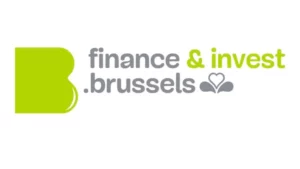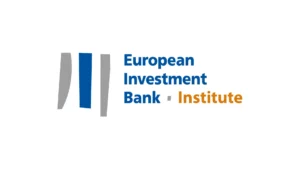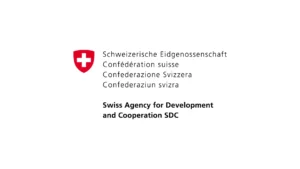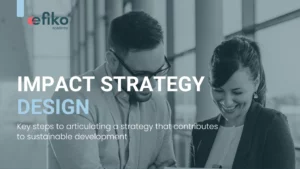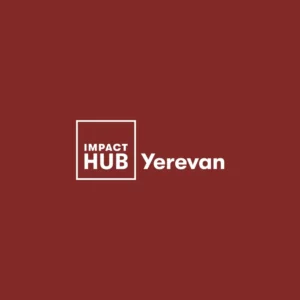Impact investing has gained significant traction in recent years as investors increasingly prioritise blending both financial returns and positive societal and environmental outcomes. As this investment approach gains momentum, it is however essential for professionals in the field to possess the necessary skills and expertise to handle the complexity and opportunities that come with seeking blended returns. The Competence Framework provides a comprehensive roadmap for individuals seeking to excel in impact investment analysis.
In this article, we will delve into some key areas of the framework and explore how mastering them can lead to impactful investment decisions.
Transversal Skills for All Impact Investors
To excel in impact investing, individuals need to cultivate transversal skills that enable them to think, act, and relate in a holistic manner. Systems thinking is a fundamental transversal skill that impact finance professionals should be able to use to form critical reasoning for evaluating and supporting investment opportunities. They should also show awareness for system dynamics, and the array of possible outcomes arising from interdependencies between stakeholders. Excellent analysts will also use heuristics to make sense of the world and to think over a long-term horizon.
Then relating effectively is another crucial transversal skill in impact investing. It involves empathetic and respectful engagement with diverse stakeholders, including communities, non-profits, governments, and corporations. Building trust and nurturing relationships is essential for understanding local contexts, identifying shared goals, and co-creating sustainable solutions. By fostering inclusive decision-making processes and ensuring the voices of marginalised groups are heard, impact investors can foster equitable outcomes and avoid unintended negative consequences.
Then relating effectively is another crucial transversal skill in impact investing. It involves empathetic and respectful engagement with diverse stakeholders, including communities, non-profits, governments, and corporations. Building trust and nurturing relationships is essential for understanding local contexts, identifying shared goals, and co-creating sustainable solutions. By fostering inclusive decision-making processes and ensuring the voices of marginalised groups are heard, impact investors can foster equitable outcomes and avoid unintended negative consequences.
Knowledge about Sustainability Solutions
To make informed investment decisions, impact investors need a deep understanding of social or environmental issues. This knowledge goes beyond surface-level awareness and requires a comprehensive grasp of the root causes, contextual complexities, and potential systemic implications of these challenges. By conducting rigorous research, staying updated on relevant data, and engaging with subject matter experts, analysts can develop a nuanced understanding of the issues they seek to address.
Assessing the track record of existing solutions is another crucial aspect of impact investing knowledge. In practice, this means putting in the effort to study past failures, successes, and lessons learned by others, while also understanding the characteristics and financial implications of impact enterprise models. By leveraging this knowledge, impact investors can identify promising initiatives, avoid duplication, and allocate resources to initiatives with a proven track record and potential to effectively address sustainability issues.
Assessing the track record of existing solutions is another crucial aspect of impact investing knowledge. In practice, this means putting in the effort to study past failures, successes, and lessons learned by others, while also understanding the characteristics and financial implications of impact enterprise models. By leveraging this knowledge, impact investors can identify promising initiatives, avoid duplication, and allocate resources to initiatives with a proven track record and potential to effectively address sustainability issues.
Functional Skills for Investment Analysts
Sound impact investment analysis also requires a set of functional skills. Pipeline development involves sourcing and screening potential investment opportunities aligned with an investor’s impact goals. This skill requires the ability to engage entrepreneurs in value-adding ways, develop synergies with ecosystem actors and networks and systematically tracking progress of leads.
Furthermore, finance and business analysis skills are also essential in impact investing. Investors must be confident in assessing the financial viability, risk-return profile, and long-term sustainability of potential investments. This requires the ability to conduct rigorous financial due diligence, analyse business models, and evaluate revenue generation potential.
It also entails the ability to structure impact investments, taking into account the specifics of an enterprise’s impact-business model, market conditions and the ecosystem of financing actors and instruments that can be leveraged. The capacity to tailor instruments to adequately distribute risks and returns and incentivise the pursuit of social impact is crucial in this regard.
Furthermore, finance and business analysis skills are also essential in impact investing. Investors must be confident in assessing the financial viability, risk-return profile, and long-term sustainability of potential investments. This requires the ability to conduct rigorous financial due diligence, analyse business models, and evaluate revenue generation potential.
It also entails the ability to structure impact investments, taking into account the specifics of an enterprise’s impact-business model, market conditions and the ecosystem of financing actors and instruments that can be leveraged. The capacity to tailor instruments to adequately distribute risks and returns and incentivise the pursuit of social impact is crucial in this regard.
Upskill to Grow your Additionality
In the realm of impact investing, competence is a key driver of sustainable change. The Competence Framework for impact investment analysts encompasses a comprehensive set of skills required to thrive in this dynamic field. Professionals with a strong foundation in transversal skills, knowledge about sustainability issues and solutions as well as advanced functional skills will thrive in this fast developing space By embracing this competence framework, impact fund managers and HR manager can inform and unlock opportunities to develop the competences within their teams and in fine increase the chances to deliver against the impact investment mandate.
These courses might interest you

Impact Investing Fundamentals

Structuring Hybrid Impact Investments


